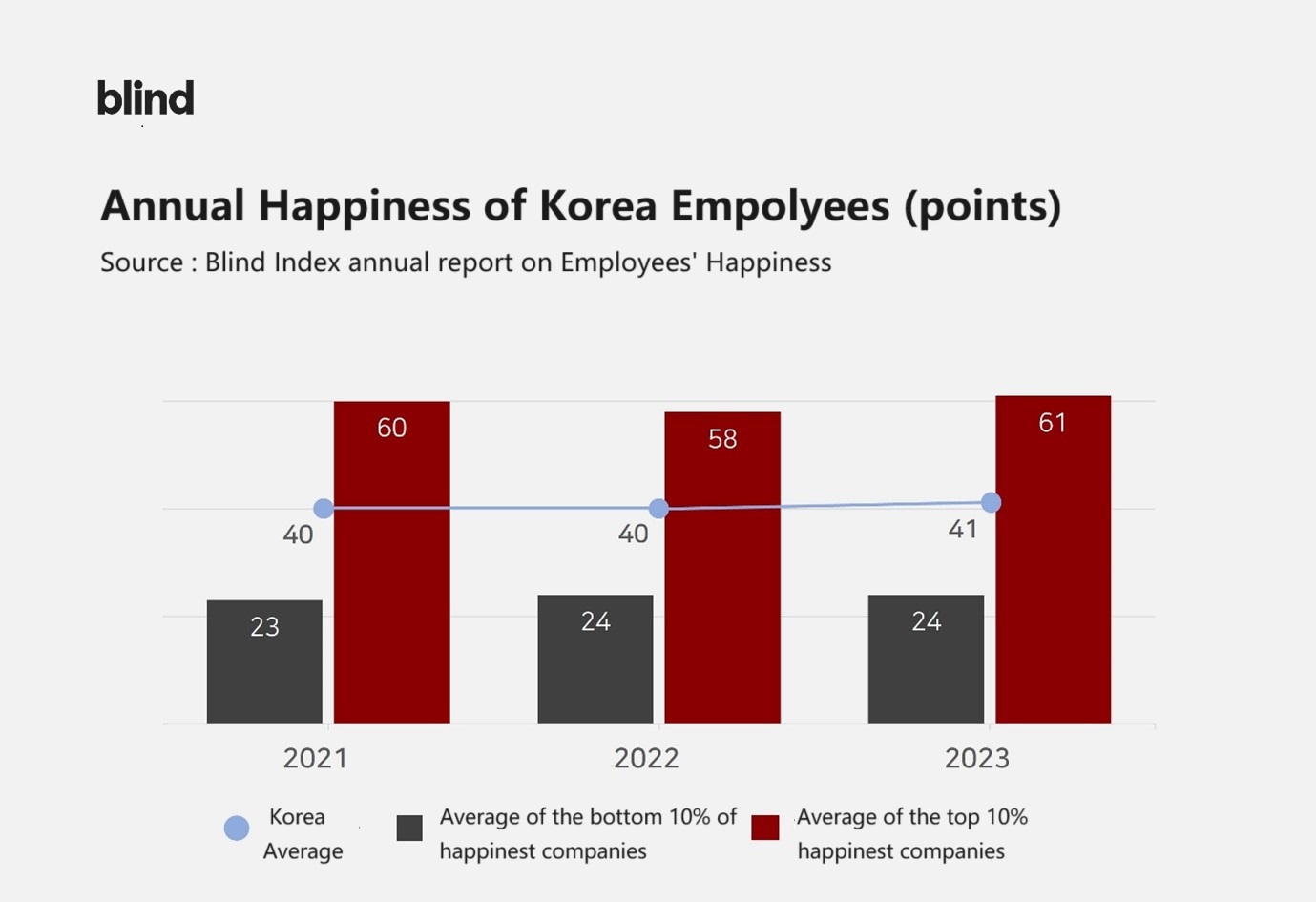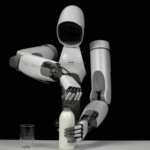
According to the results of the Blind Index of Employee Happiness (BIE), a survey jointly developed by the Korea Labour Institute and Blind, the happiness of Korean employees increased by one point to 41 points last year.
Since the survey began in 2018, the average happiness of Korean employees has not exceeded 50 points. This is mainly due to high stress levels and low job satisfaction. Among the major Korean conglomerates, NAVER was rated the highest by its employees, while Kakao, which was rated the highest the previous year, saw a significant drop.
In the survey of 50,216 Korean employees, the index gap between the top 10% of companies and the bottom 10% of companies in terms of happiness was 2.5 times greater than last year. The biggest gap between the top and bottom groups was in stress and job satisfaction.
Among individual companies, the Korea Institute of Nuclear Safety (KINS) (82 points) was the highest rated company last year. DAEHAKNAEIL, Google Korea, SAP Korea, Synopsys Korea, Naver Webtoon, Karrot, Korea Midland Power (KOMIPO), Qualcomm South Korea and Nexon Games also scored above 70. Four of the top 10 companies rated by incumbents were foreign-owned.
Among the large group companies, NAVER had the highest score (62 points). Most of its subsidiaries, including Naver Webtoon, LINE Plus and NAVER, received high scores. Kakao (39 points), which had the highest score the previous year, saw its score fall and did not exceed the overall average for all Korean companies.
By occupation, professionals such as doctors (60 points), pharmacists (59 points) and lawyers (59 points) had the highest levels of happiness, while military personnel (30 points) and journalists (34 points) had the lowest. Military personnel (30 points) were more than 40 per cent less happy than their US counterparts (51 points).
By job level, assistant managers (37 points) were the least happy. Among the job factors, employees scored lower on the meaningfulness of their work (the extent to which they believe their work in the organisation makes a difference in their lives) and among the relationship factors, they scored lower on the relationship with their manager (the extent to which they believe their manager supports them in their work).
Employee happiness was also found to be strongly related to a company’s market value and stock returns. According to a research team led by Professor Jae-Yong Shin, Professor of Accounting at Seoul National University, job satisfaction and organisational commitment are key factors that have a significant impact on company performance, according to a four-year analysis of the Blind Index. For every 10-point increase in employee job satisfaction and organisational commitment, a company’s market value increased by 4.2% and 4.5%, respectively, compared to the average. The relationship was stronger for those spending more on research and having more human resources.
“Traditionally, investing in employee satisfaction has been seen as a drain on a company’s financial performance. However, in today’s knowledge-based economy, where intangible assets such as R&D capability and brand power are increasingly important and individuals have a much greater impact on company value, improving employee satisfaction is essential to generating financial performance,” said Professor Shin. “Given the demographics of our society, where workers are becoming increasingly scarce, the era of companies choosing people is over, and now people are choosing companies. Organisations need to focus on improving the satisfaction of their younger, less experienced employees. Only organisations that invest in their people will survive in the future.
The Blind Index collects a sample of more than 50,000 employees each year and asks them to rate their happiness in three areas: work, relationships and culture. Companies only reveal their results for the year if the sample exceeds a certain percentage of their actual employees. The survey was conducted via the Blind app in Korea between 28 June and 28 November 2023.






댓글 남기기